Your search “Keep%20the%20death%20penalty%abolished%20in%20the%20ePhilippfines%20e%20e%20e%20e%20e%20e%20e%20e%20e%20e/page/www.humanrights.asia/resources/report/2011/AHRC-sur-008-2011/act_download/file ”
Document(s)
The Mercy Workers, Death Penalty Mitigation Specialists
By Maurice Chammah, The Marshall Project, on 2 March 2023
2023
Article
Legal Representation
United States
More details See the document
For three decades, a little-known group of “mitigation specialists” has helped save death-penalty defendants in the USA by documenting their childhood traumas. A rare look inside one case.
- Document type Article
- Countries list United States
- Themes list Legal Representation
Document(s)
Capital Punishment A Hazard to a Sustainable Criminal Justice System?
By Ashgate Publishing / Lill Scherdin, on 8 September 2020
2020
Book
More details See the document
This book questions whether the death penalty in and of itself is a hazard to a sustainable development of criminal justice. As most jurisdictions move away from the death penalty, some remain strongly committed to it, while others hold on to it but use it sparingly. This volume seeks to understand why, by examining the death penalty’s relationship to state governance in the past and present. It also examines how international, transnational and national forces intersect in order to understand the possibilities of future death penalty abolition.The chapters cover the USA – the only western democracy that still uses the death penalty – and Asia – the site of some 90 per cent of all executions. Also included are discussions of the death penalty in Islam and its practice in selected Muslim majority countries. There is also a comparative chapter departing from the response to the mass killings in Norway in 2011. Leading experts in law, criminology and human rights combine theory and empirical research to further our understanding of the relationships between ways of governance, the role of leadership and the death penalty practices.
- Document type Book
- Themes list Due Process , International law, Trend Towards Abolition,
Document(s)
Death Penalty for Female Offenders
By Victor Streib / Ohio Northern University, on 1 January 2009
2009
Article
United States
More details See the document
The data herein are updated as often and as quickly as possible, with the last date of entry noted on the cover page. However, given the difficulty of gathering complete information from all jurisdictions and as soon as cases develop, these reports may under-report the number of female offenders under death sentences. The subjects of these reports are female offenders sentenced to death. They are not all referred to as women, since some were as young as age fifteen at the time of their crimes. However, no such very young female offenders are currently under death sentences. —- See bottom left hand corner of web page.
- Document type Article
- Countries list United States
- Themes list Women,
Document(s)
Capital Punishment in the Philippines
By Arlie Tagayuna / Southeast Asian Studies, on 1 January 2004
2004
Article
Philippines
More details See the document
While an examination of the social and political currents of each country would perhaps be the best way to answer the question “Why is there strong support for capital punishment in Southeast Asia?”, this paper will begin this effort by looking specifically at the Philippines, a society that has received more exposure to democratic tenets and human rights advocacy than other Southeast Asian countries (Blitz, 2000).
- Document type Article
- Countries list Philippines
- Themes list Public opinion,
Document(s)
THE RACIAL GEOGRAPHY OF THE FEDERAL DEATH PENALTY
By Robert J. Smith / Ben Cohen / Washington Law Review, on 1 January 2010
2010
Article
United States
More details See the document
Scholars have devoted substantial attention to both the overrepresentation of black defendants on federal death row and the disproportionate number of federal defendants charged capitally for the murder of white victims. This attention has not explained (much less resolved) these disquieting racial disparities. Little research has addressed the unusual geography of the federal death penalty, in which a small number of jurisdictions are responsible for the vast majority of federal death sentences. By addressing the unique geography, we identify a possible explanation for the racial distortions in the federal death penalty: that federal death sentences are sought disproportionately where the expansion of the venire from the county to the district level has a dramatic demographic impact on the racial make-up of the jury. This inquiry demonstrates that the conversation concerning who should make up the jury of twelve neighbors and peers—a discussion begun well before the founding of our Constitution—continues to have relevance today. Louisiana, Missouri, Virginia and Maryland referred to.
- Document type Article
- Countries list United States
- Themes list Networks,
Document(s)
INSECURITY REVEALED: Voices Against the Death Penalty
By World Coalition Against the Death Penalty, on 6 August 2024
2024
Campaigning
World Coalition
frMore details Download [ pdf - 1313 Ko ]
- Document type Campaigning / World Coalition
- Available languages L'INSÉCURITÉ RÉVÉLÉE : Voix contre la peine de mort
Document(s)
Malaysia: On Death Row
By Al Jazeera, on 1 January 2019
2019
Multimedia content
Malaysia
More details See the document
In Malaysian jails, more than 1,200 prisoners are on death row. For them, news that the government was planning to abolish the death penalty provided a much-needed glimmer of hope. But many Malaysians want to keep the law as it is, saying capital punishment deters criminals and helps keep citizens safe. Families of murder victims say the only way to get justice for their loved ones is by hanging the perpetrators. 101 East meets the people on either side of this emotional life-and-death debate and investigates if Malaysia is ready to abolish the death penalty.
- Document type Multimedia content
- Countries list Malaysia
- Themes list Moratorium , Murder Victims' Families, Death Row Phenomenon,
Document(s)
The State of Texas vs. Melissa
By Sabrina Van Tassel, on 25 March 2020
2020
Multimedia content
Fair Trial
United States
More details See the document
Melissa Lucio was the first Hispanic woman sentenced to death in Texas. For ten years she has been awaiting her fate, and she now faces her last appeal.
- Document type Multimedia content
- Countries list United States
- Themes list Fair Trial
Document(s)
Geometrical Justice: The Death Penalty in America
By Scott Phillips and Mark Cooney, on 12 October 2022
2022
Book
United States
More details See the document
In their new book, released in the Summer of 2022, University of Denver criminology and sociology professor Scott Phillips and University of Georgia sociologist Mark Cooney apply the concept of “social geometry,” developed in the 1970s by sociologist Donald Black, to analyze outcomes of capital cases. After reviewing extensive data collected in connection with the landmark Baldus Study of capital sentencing in Georgia and from the national Capital Jury Project, they conclude that the sentencing outcomes in the cases in those databases support key principles of Black’s theory: the higher the social status of the victim and the lower the social status of the defendant, the more likely a death sentence will be imposed.
- Document type Book
- Countries list United States
Document(s)
Experimenting with Death: An Examination of Colorado’s Use of the Three-Judge Panel in Capital Sentencing
By Lutz, Robin / University of Colorado Law Review, on 1 January 2002
2002
Article
United States
More details See the document
Mr. Page committed an atrocious crime. He did not know his victim, Peyton Tuthill, a young woman who had recently graduated from college and moved to Denver. But he was in her house, looking for money and items to sell, when she returned from a job interview. Instead of leaving her home, Mr. Page stayed to beat Peyton Tuthill, tie her up, stab her, slit her throat, rape her repeatedly, and eventually, kill her. Clearly, Ms. Tuthill did not deserve to die such a tortured death. Clearly, her death resulted from an egregious crime. However, the answer to the question of whether Mr. Page should be executed for committing this murder is not as clear. Some would answer affirmatively, others negatively. An important question is: who should decide?
- Document type Article
- Countries list United States
- Themes list Networks,

Member(s)
We Believe in Second Chances
on 30 April 2020
We Believe in Second Chances was founded as a reaction to Yong Vui Kong’s condemnation to death, and are advocating for the abolishment of the death penalty in Singapore.
2020
Singapore
Document(s)
The Juvenile Death Penalty Today: Death Sentences and Executions for Juvenile Crimes, January 1, 1973 – February 28, 2005
By Victor Streib / Ohio Northern University, on 8 September 2020
2020
Article
United States
More details See the document
This is Issue #77, the final issue of these periodic reports, having first been launched on June 15, 1984. On that date, the death penalty for juvenile offenders (defined as those under age 18 at the time of their crimes) was an obscure issue in law as well as in political and social arenas. During the last twenty-one years, these reports have been with us (1) through the intense litigation of the late 1980s, (2) through our society’s near hysteria about violent juvenile crime in the 1990s, (3) into the era of the international pressure on the United States to abandon this practice, and (4) now at the end of this practice. The validity and influence of these reports is indicated by thecitations to them in the opinions of leading courts, including the United States Supreme Court: Roper v. Simmons, 125 S.Ct. 1183, 1192, 1193, 1210, 1211, 1221 (2005); In re Stanford, 537 U.S. 968, 971 (2002); and Stanford v. Kentucky, 492 U.S. 361, 373 (1989). In the litigation leading up to the final juvenile death penalty case before the United States Supreme Court (Roper v. Simmons, 125 S.Ct. 1183 (2005)), the Missouri Supreme Court majority opinion included 12 citations to these reports: See Simmons v. Roper, 112 S.W.3d 397, 408, 409, 411 (Mo. 2003). This final issue of this periodic report is intended to document the status of the death penalty for juvenile offenders as ofthe day before the United States Supreme Court held this practice to be unconstitutional. These reports sketch the characteristics of the juvenile offenders and their crimes who have been sentenced to death, who have been executed, and who are currently under death sentences. —- See bottom left hand corner of web page.
- Document type Article
- Countries list United States
- Themes list Juveniles,
Document(s)
Leaflet Women and the Death Penalty
By World coalition against the death penalty, on 2 October 2023
2023
World Coalition
Gender
frMore details Download [ pdf - 1448 Ko ]
- Document type World Coalition
- Themes list Gender
- Available languages Brochure femme et peine de mort
Document(s)
Resolution 67/176 – Moratorium on the use of the death penalty
By United Nations General Assembly, on 8 September 2020
2020
International law - United Nations
aresfrruzh-hantMore details See the document
Resolution adopted by the United Nations General Assembly on 20 December 2012 [on the report of the Third Committee (A/67/457/Add.2 and Corr.1)] 67/176. Moratorium on the use of the death penalty
- Document type International law - United Nations
- Available languages قرار ٦٧/١٧٦ - وقف العمل بعقوبة الإعدامResolución 67/176 - Moratoria del uso de la pena de muerte.Résolution 67/176 - Moratoire sur l'application de la peine de mortРезолюция 67/176 - Мораторий на применение смертной казни大会决议67/176 - 暂停使用死刑
Document(s)
Resolution 65/206 – Moratorium on the use of the death penalty
By United Nations General Assembly, on 8 September 2020
International law - United Nations
aresfrruzh-hantMore details See the document
Resolution adopted by the General Assembly [on the report of the Third Committee (A/65/456/Add.2 (Part II))] 65/206. Moratorium on the use of the death penalty
- Document type International law - United Nations
- Available languages قرار ٦٥/ ٢٠٦ - وقف العمل بعقوبة الإعدامResolución 65/206 - Moratoria del uso de la pena de muerteRésolution 65/206 - Moratoire sur l'application de la peine de mortРезолюция 65/206 - Мораторий на применение смертной казни大会决议65/206 - 暂停使用死刑

Member(s)
Foundation for Human Rights Initiative (FHRI)
on 30 April 2020
The Foundation for Human Rights Initiative (FHRI) is an independent, non-governmental organisation aiming to enhance the knowledge, respect and observance of human rights in Uganda. FHRI’s objective is to remove obstacles to democratic development. The organisation defends the fundamental freedoms enshrined in the 1995 Ugandan Constitution and other internationally recognised human rights instruments. FHRI undertakes […]
2020
Uganda
Document(s)
Seven Winters in Teheran
By Steffi Niederzoll, on 24 March 2023
2023
Multimedia content
Gender
Iran (Islamic Republic of)
Women
frMore details See the document
In the summer of 2007, an older man approaches Reyhaneh Jabbari and asks the architecture student who has a side job as an interior decorator for her help in the design of offices. During the site inspection, he tries to rape her. Reyhaneh stabs him in self-defence. She is arrested for murder and sentenced to death. Reyhaneh was to spend the next seven years in prison while her family hired lawyers and made the public aware of the case. However, in spite of the efforts of national and international politicians and human rights organisations, the Iranian judiciary continued to cite the “right of blood-revenge”. This meant that, as long as Reyhaneh did not withdraw her accusations against the man, his family could demand her death. Reyhaneh stuck to her testimony and was hanged at the age of 26.
In her moving and shockingly topical documentary debut, director Steffi Niederzoll uses among other things original audio and visual material that was smuggled out of Iran. This film, in which Holy Spider actor Zar Amir Ebrahimi lends Reyhaneh her voice, makes visible the injustice in Iranian society and portrays an involuntary heroine who gave her life in the fight for women’s rights.
- Document type Multimedia content
- Countries list Iran (Islamic Republic of)
- Themes list Gender / Women
- Available languages Sept hivers à Téhéran
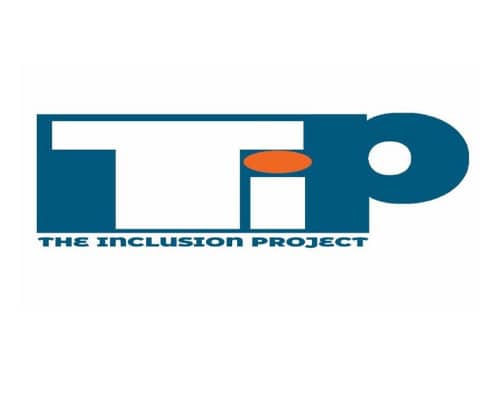
Member(s)
The Inclusion Project
on 13 September 2024
The Inclusion Project (TIP) is a legal services provider founded in 2019 and registered in Nigeria as The Inclusion Project.
2024
Nigeria
Document(s)
The Death Penalty: A Worldwide Perspective
By Roger Hood / Carolyn Hoyle / Oxford University Press, on 1 January 2014
2014
Book
More details See the document
The Death Penalty: A Worldwide Perspective by Roger Hood and Carolyn Hoyle is the Fourth Edition of a text that highlights the latest developments in the death penalty around the world. Roger Hood utilizes his experience as a consultant to the United Nations’ annual survey of capital punishment in compiling a wide range of information from non-governmental organizations and academic literature. The book explores both the advances in legal challenges to the death penalty and the reduction in executions, while noting the continued existence of human rights abuses. Problems include unfair trails, police abuse, painful forms of execution, and excessive periods of time spent in inhumane conditions on death row. The authors explore the latest issues related to capital punishment such as deterrence, arbitrariness, and what influence victims’ families should have in sentencing.
- Document type Book
- Themes list Death Penalty,
Member(s)
European Association for Human Rights
on 30 April 2020
The European Association for Human Rights mainly promotes the welfare of prisoners. Its work is especially focused on taking care for death row prisoners and their children, and abolishing the death penalty. Many people on death row are dismissed in their search for help and support from the established human rights organizations. There is a […]
2020
France
Document(s)
The importance of raising awareness among ambassadors to the African Union on the draft African Protocol on abolition of the death penalty
By FIACAT / Xavière Prugnard, on 1 January 2019
2019
Multimedia content
frMore details See the document
FIACAT press release about the awareness raising workshop for permanent representatives to the African Union.
- Document type Multimedia content
- Themes list International law, Trend Towards Abolition, World Coalition Against the Death Penalty,
- Available languages L'importance de la sensibilisation des ambassadeurs auprès de l'Union africaine sur le projet de Protocol africain sur l'abolition de la peine de mort
Document(s)
Central African Republic : Seventeenth Session of the Working Group on the Universal Periodic Review
By The Advocates for Human Rights, on 1 January 2014
2014
Multimedia content
Central African Republic
More details See the document
This submission addresses the Central African Republic’s compliance with its humanrights obligations with regard to its use of the death penalty. This submission concludesthat although the Central African Republic (CAR) should be given great credit for takingimportant steps towards abolition of the death penalty, including supporting the 2012U.N. General Assembly resolution calling for a moratorium on the death penalty, manyhurdles remain in terms of ensuring that the citizens of CAR are afforded adequatedomestic and international guarantees against the arbitrary deprivation of life.
- Document type Multimedia content
- Countries list Central African Republic
- Themes list Due Process , Trend Towards Abolition, Arbitrariness,
Document(s)
Children of parents sentenced to death or executed: How are they affected? How can they be supported?
By Child Rights Connect , on 8 September 2020
2020
Arguments against the death penalty
More details See the document
From the point of arrest decades after the execution or release of a parent accused of a capital crime, the children’s mental health and wellbeing, living situation, and relationships with others can all be affected, usually in a devastating manner. The inherent trauma of knowing that a loved one is going to be executed can be exacerbated by public indifference or hostility, and by authorities who either fail to recognise or deliberately refuse to consider the situation of these children. This publication addresses the challenges to support the children.
- Document type Arguments against the death penalty
- Themes list Juveniles, International law, Murder Victims' Families,
poster-21st-world-day-against-death-penalty
on 12 June 2023
poster-21st-world-day-against-death-penalty
2023
HOW-STATES-ABOLISH-THE-DEATH-PENALTY_A-SUPPLEMENT-OF-CASE-STUDIES
on 16 December 2022
HOW-STATES-ABOLISH-THE-DEATH-PENALTY_A-SUPPLEMENT-OF-CASE-STUDIES
2022
Poster World day against the death penalty 2024 – 2025 – Indonesian
on 24 July 2024
Poster World day against the death penalty 2024 – 2025 – Indonesian
2024
Document(s)
Imposing a Cap on Capital Punishment
By Adam M. Gershowitz / Missouri Law Review 72(1), 73-124., on 1 January 2007
2007
Article
United States
More details See the document
This article argues that because prosecutors have discretion to seek the death penalty in too many cases, they lack the incentive to police themselvesand choose carefully. Put simply, because there are few legal constraints — and virtually no political constraints — on the sheer number of cases in which prosecutors can pursue the death penalty, the Government is not under sufficient pressure to limit its use of capital punishment to only the most heinous cases. As a result, two things happen. First, the death penalty is sought and meted out in some cases, which though terrible, are no worse than the thousands of other murder cases in which prosecutors pursue only life imprisonment. Second, because prosecutors file too many capital cases, the criminal justice system lacks the resources to focus sufficient attention on each one.
- Document type Article
- Countries list United States
- Themes list Arbitrariness, Most Serious Crimes,
Document(s)
Poster World Day 2003
By World Coalition against the death penalty , on 10 October 2003
2003
Campaigning
Trend Towards Abolition
More details See the document
Poster for the world day against the death penalty 2003
- Document type Campaigning
- Themes list Trend Towards Abolition
Document(s)
Poster World Day 2003
By World coalition against the death penalty , on 10 October 2003
Campaigning
Trend Towards Abolition
frMore details See the document
Poster World Day 2003
- Document type Campaigning
- Themes list Trend Towards Abolition
- Available languages Affiche journée mondiale 2003
Document(s)
Poster 21st World Day Against the Death Penalty
By World coalition against the death penalty, on 12 June 2023
2023
Campaigning
World Coalition
aresfafrruzh-hantMore details Download [ pdf - 4027 Ko ]
- Document type Campaigning / World Coalition
- Available languages 2023 ملصق اليوم العال مPoster Spanish – 2023 Día Mundial contra la Pena de MuertePoster Farsi 2023 – بیستمین روز جهانی علیهمجازات مرگPoster 21ème Journée Mondiale contre la peine de mortPoster Russian 2023 — 21-Й ВСЕМИРНЫЙ ДЕНЬ БОРЬБЫ ПРОТИВ СМЕРТНОЙ КАЗНИPoster Chinese 2023- 第21个世界反对死刑日
Document(s)
Women and Death Penalty Factsheet – World Day 2023
By World coalition against the death penalty, on 15 August 2023
2023
World Coalition
Gender
frMore details Download [ pdf - 424 Ko ]
- Document type World Coalition
- Themes list Gender
- Available languages Faits et chiffres Les femmes et la peine de mort - 21e journée mondiale contre la peine de mort
Document(s)
Database Center for North Korean Human Rights – Briefings on public execution
By Database Center for North Korean Human Rights, on 8 September 2020
2020
Article
Republic of Korea
More details See the document
NKDB hosts a monthly English language briefing and discussion on North Korean human rights every month with embassy officials, NGO staff, and NKDB staff as guests
- Document type Article
- Countries list Republic of Korea
- Themes list World Coalition Against the Death Penalty, Death Penalty, Country/Regional profiles,
Document(s)
NGO Media Outreach: Using the Media as an Advocacy Tool
By Coalition for the International Criminal Court, on 1 January 2003
2003
Working with...
More details See the document
A guide for NGOs to use media effectively. This guide explains the importance of media, how to create contacts, how to prepare a media outreach campaign, how to deliver a campaign to the media and how to use available resources to support your media campaign.
- Document type Working with...
- Themes list Networks,
Document(s)
Joint Letter Calling on the HRC to Renew the Mandate of the Special Rapporteur on Human Rights in Iran
By Human Rights Watch / Impact Iran , on 1 January 2018
2018
Multimedia content
Iran (Islamic Republic of)
More details See the document
In this joint letter many Iranian and international human rights organizations, urge the governments they called to support the renewal of the mandate of the Special Rapporteur on human rights in the Islamic Republic of Iran, during the 37th session of the UN Human Rights Council.
- Document type Multimedia content
- Countries list Iran (Islamic Republic of)
- Themes list Cruel, Inhuman and Degrading Treatment and Punishment, Discrimination,
Document(s)
The Death Penalty Is Dead Wrong: Jus Cogens Norms and the Evolving Standard of Decency
By Geoffrey Sawyer / Penn State International Law Review, on 1 January 2004
2004
Article
Nigeria
More details See the document
The conviction of Amina Lawal in Nigeria for committing adultery and sentence of death by stoning created an international outcry of support to overturn her sentence. The support she received is a reflection of the outrage many around the world feel toward this particular method of execution, and in a larger context the growing social norm that the death penalty should be abolished. As more of the world looks upon the death penalty as unfair, or cruel and unusual, or as torture, arguably, a jus cogens norm prohibiting the death penalty has developed in international law, and will ultimately be the vehicle by which the death penalty will be abolished worldwide. Part I of this comment will detail the plight of Amina Lawal, and how her situation is indicative of the globalization of human rights norms. In Part II, this comment will examine the meaning of a jus cogens norm and how it can be established in the context of capital punishment. Using human rights treaties, the law and practice of other nations, and international tribunal decisions, Part III will assert, citing other contexts, such as the “right to life,” and the already entrenched jus cogens norm prohibiting torture, that a jus cogens norm abolishing the death penalty has arguably already been established. Finally, Part IV will assess what the effect of the establishment of a jus cogens norm prohibiting capital punishment.
- Document type Article
- Countries list Nigeria
- Themes list Stoning,
Document(s)
Death penalty – Beyond abolition
By Council of Europe / Hugo Adam Bedau / Peter Hodgkinson / Roger Hood / Robert Badinter / Michel Forst / Anne Ferrazzini / Eric Prokosch / H.C Krüger / C. Ravaud / Sir Nigel Rodley / Renate Wohlwend / Yoshihiro Yasuda / Anatoly Pristavkin, on 8 September 2020
2020
Book
France
frMore details See the document
Europe is today the only region in the world where the death penalty has been almost completely abolished. In the Council of Europe’s 45 member states, including the European Union’s 15 member states and its 13 candidate countries, capital punishment is no longer applied. The Council of Europe played a pioneering role in the battle for abolition, believing that the death penalty has no place in democratic societies under any circumstances. This determination to eradicate the death penalty was reflected in Protocol No.6 to the European Convention on Human Rights, on the abolition of the death penalty in peacetime, which was adopted in April 1983, then in Protocol No.13 on the abolition of the death penalty in all circumstances, adopted in May 2002.Introduced by Roger Hood, an international expert on death penalty legislation, this book reviews the long and sometimes tortuous path to abolition in Europe. It also addresses the tangible problems which countries face once the death penalty has been abolished, and related issues: the situation of murder victims’ families and alternatives to capital punishment, particularly the choice of a substitute sentence.The Council of Europe’s campaign for abolition is currently being pursued beyond Europe’s borders, in those states which have Observer status with the organisation, particularly the United States and Japan: the situation in these countries is discussed here.This publication will be of interest to all those who feel concerned by this issue, particularly members of NGOs, lawyers, officials in departments dealing with legal and criminal affairs, and human rights campaigners.
- Document type Book
- Countries list France
- Available languages Peine de mort - Après l'abolition
Document(s)
Is the Death Penalty an Asian Value?
By Sangmin Bae / Asian Affairs, on 1 January 2008
2008
Article
More details See the document
Since World War, a growing number of countries around the world have joinedthe movement to abolish capital punishment. Asia remains the exception and ithas been argued by some Asian leaders that the abolition of capital punishmentis in conflict with “Asian values” and that the abolitionist argument constitutesan illegitimate interference in what is essentially a domestic concern. Thisarticle reviews the death penalty in the context of international human rightsand examines the Asian values argument. Reviewing the teachings of Confuciusand other Asian philosophers, it suggests that the ongoing use of the deathpenalty in Asia is not rooted in intrinsic cultural traditions, but in fact is tiedto internal political decisions. The Asian values argument has been largelyused as a means to maintain political legitimacy, and not anything inherent tocultural factors.
- Document type Article
- Themes list Networks,
Document(s)
Ethical Responsibilities of Physicians: Capital Punishment in the 21st Century
By Karen B. Rosenbaum / William Connor Darby / Robert Weinstock / Psychiatric Annals, on 1 January 2015
2015
Article
United States
More details See the document
The American Medical Association is among many medical professional organizations that prohibit the participation of physicians in the physical act of execution. Despite these clear guidelines, debate remains regarding physician involvement in various aspects of death penalty cases. This article outlines different positions that physicians and specifically forensic psychiatrists have taken on this issue. Our position is that given the overwhelming secondary duty related to their physician role—specifically to do no harm—forensic psychiatrists should not use their expertise if they believe their involvement will be used for the primary purpose of obtaining a death penalty.
- Document type Article
- Countries list United States
- Themes list Intellectual Disability,
Document(s)
on 1 January 2020
2020
Book
India
More details See the document
In Abolishing the Death Penalty: Why India Should Say No to Capital Punishment, Gopalkrishna Gandhi asks fundamental questions about the death penalty. Is taking another life a just punishment or an act as inhuman as the crime that triggered it? Does having capital punishment in the law books deter crime? His conclusions are unequivocal: Cruel in its operation, ineffectual as deterrence, unequal in its application in an uneven society, liable like any punishment to be in error but incorrigibly so, these grievous flaws that are intrinsic to the death penalty are compounded by yet another—it leaves the need for retribution unrequited and simply makes society more bloodthirsty.Examining capital punishment around the world from the time of Socrates onwards, the author delves into how the penalty was applied in India during the times of Asoka, Sikandar Lodi, Krishnadevaraya, the Peshwas and the British Raj, and how it works today.
- Document type Book
- Countries list India
- Themes list Public debate, Deterrence , Trend Towards Abolition, Right to life, Death Penalty, Country/Regional profiles,
Document(s)
Abolishing the Death Penalty: Why India Should Say No to Capital Punishment
By Gopalkrishna Gandhi, on 1 January 2016
2016
Book
India
More details See the document
In Abolishing the Death Penalty: Why India Should Say No to Capital Punishment, Gopalkrishna Gandhi asks fundamental questions about the ultimate legal punishment awarded to those accused of major crimes. Is taking another life a just punishment or an act as inhuman as the crime that triggered it? Does having capital punishment in the law books deter crime? His conclusions are unequivocal: Cruel in its operation, ineffectual as deterrence, unequal in its application in an uneven society, liable like any punishment to be in error but incorrigibly so, these grievous flaws that are intrinsic to the death penalty are compounded by yet another—it leaves the need for retribution (cited as its primary ‘good’) unrequited and simply makes society more bloodthirsty.Examining capital punishment around the world from the time of Socrates onwards, the author delves into how the penalty was applied in India during the times of Asoka, Sikandar Lodi, Krishnadevaraya, the Peshwas and the British Raj, and how it works today
- Document type Book
- Countries list India
- Themes list Capital offences, Public debate, Deterrence , Trend Towards Abolition, Right to life, Cruel, Inhuman and Degrading Treatment and Punishment, Death Penalty, Country/Regional profiles,
Document(s)
Peculiar Institution: America’s Death Penalty in an Age of Abolition
By David Garland / Belknap Press of Harvard University Press, on 8 September 2020
2020
Book
United States
More details See the document
This book offers a fresh perspective on why the death penalty endures in the United States when so many other countries in the Western world have already abolished it. The book seeks to understand the persistence of the death penalty in the U.S. as a social fact, using sociological, historical and legal analyses to explain the unique and peculiar manner in which the death penalty is applied. Garland concludes that the death penalty has survived in the United States because it is deeply connected to the fundamentally American institutions of local autonomy and popular democracy.
- Document type Book
- Countries list United States
- Themes list Networks,
Document(s)
Death Penalty: The Political Foundations of the Global Trend Towards Abolition
By Eric Neumayer / Human Rights Review, on 1 January 2008
2008
Article
More details See the document
The death penalty is like no other punishment. Its continued existence in many countries of the world creates political tensions within these countries and between governments of retentionist and abolitionist countries. After the Second World War, more and more countries have abolished the death penalty. This article argues that the major determinants of this global trend towards abolition are political, a claim which receives support in a quantitative cross-national analysis from 1950 to 2002. Democracy, democratisation, international political pressure on retentionist countries and peer group effects in relatively abolitionist regions all raise the likelihood of abolition. There is also a partisan effect, as abolition becomes more likely if the chief executive’s party is left wing-oriented. Cultural, social and economic determinants receive only limited support. The global trend towards abolition will go on if democracy continues to spread around the world and abolitionist countries stand by their commitment to press for abolition all over the world.
- Document type Article
- Themes list Trend Towards Abolition,
Document(s)
The Rise, Fall, and Afterlife of the Death Penalty in the United States
By Carol S. Steiker / Annual Review of Law and Social Science, on 1 January 2020
2020
Article
United States
More details See the document
This review addresses four key issues in the modern (post-1976) era of capital punishment in the United States. First, why has the United States retained the death penalty when all its peer countries (all other developed Western democracies) have abolished it? Second, how should we understand the role of race in shaping the distinctive path of capital punishment in the United States, given our country’s history of race-based slavery and slavery’s intractable legacy of discrimination? Third, what is the significance of the sudden and profound withering of the practice of capital punishment in the past two decades? And, finally, what would abolition of the death penalty in the United States (should it ever occur) mean for the larger criminal justice system?
- Document type Article
- Countries list United States
- Themes list Country/Regional profiles,
Document(s)
Infographic: the Death Penalty in the Americas
By IACHR , on 1 January 2014
2014
Multimedia content
esMore details See the document
On the occasion of the International Day against the Death Penalty, the Inter-American Commission on Human Rights (IACHR) urges member States of the Organization of American States (OAS) that retain the death penalty to abolish it, or to impose a moratorium on its application as a step toward abolition, and to ensure full compliance with decisions of the IACHR concerning death penalty cases. While a majority of the member States of the OAS has abolished capital punishment, a substantial minority retains it. The United States is currently the only country in the Western hemisphere to carry out executions.
- Document type Multimedia content
- Themes list Death Penalty, Statistics, Country/Regional profiles,
- Available languages Infografía: la Pena de Muerte en las Américas
Document(s)
Sri Lankan expert needed to conduct study on the death penalty – Terms of reference
By World Coalition Against the Death Penalty, on 23 December 2021
2021
World Coalition
More details Download [ pdf - 83 Ko ]
- Document type World Coalition
Document(s)
Closing the Slaughterhouse
By Dale M Brumfield, on 8 December 2022
2022
Book
United States
More details See the document
On July 1, 2021, Virginia ended a 413-year tradition by abolishing the death penalty.
Many of those convicted from 1608 to 2017 deserved harsh punishment – but Virginia took harsh to a whole new level with its “finality over fairness” philosophy. Four hundred years of her racist, mob-driven capital punishment system ensnared many innocent and undeserving victims under the toxic guises of protecting white citizens or being “tough on crime.” So many of those killed by the state died with their guilt or innocence lost to history.
Virginia leads the nation with 1,390 executions. After a 1976 Supreme Court decision, Virginia institutionalized and streamlined the parade to the death chamber more efficiently than any other state, executing between 1976 and 2017 a breathtaking 73 percent of all who received death sentences. The national average is 16 percent.
- Document type Book
- Countries list United States

Member(s)
Lualua Center for Human Rights
on 30 April 2020
The objectives of Lualua Center for Human Rights are: 1- To contribute in the promotion of economic, social, cultural, environmental and civil growth according to the international declaration of human rights and subsequent relevant international conventions. 2- To work on achieving integrity and transparency and fighting corruption. To enshrine the concept of citizenship by promoting […]
2020
Lebanon
Document(s)
Deterrence and the Death Penalty
By John V. Pepper / Daniel S. Nagin / Committee on Deterrence and the Death Penalty / Committee on Law and Justice / Division on Behavioral and Social Sciences and Education / National Research Council , on 1 January 2012
2012
Book
More details See the document
Many studies during the past few decades have sought to determine whether the death penalty has any deterrent effect on homicide rates. Researchers have reached widely varying, even contradictory, conclusions. Some studies have concluded that the threat of capital punishment deters murders, saving large numbers of lives; other studies have concluded that executions actually increase homicides; still others, that executions have no effect on murder rates. Commentary among researchers, advocates, and policymakers on the scientific validity of the findings has sometimes been acrimonious.
- Document type Book
- Themes list Deterrence ,
Document(s)
The International Library of Essays on Capital Punishment, Volume 3 : Policy and Governance
By Peter Hodgkinson / Ashgate Publishing, on 8 September 2020
2020
Book
More details See the document
This volume provides analyses of a range of subjects and issues in the death penalty debate, from medicine to the media. The essays address in particular the personal complexities of those involved, a fundamental part of the subject usually overridden by the theoretical and legal aspects of the debate. The unique personal vantage offered by this volume makes it essential reading for anyone interested in going beyond the removed theoretical understanding of the death penalty, to better comprehending its fundamental humanity. Additionally, the international range of the analysis, enabling disaggregation of country specific motivations, ensures the complexities of the death penalty are also considered from a global perspective.
- Document type Book
- Themes list Death Penalty,
Document(s)
The International Library of Essays on Capital Punishment, Volume 2 : Abolition and Alternatives to Capital Punishment
By Peter Hodgkinson / Ashgate Publishing, on 8 September 2020
Book
More details See the document
The essays selected for this volume develop conventional abolition discourse and explore the conceptual framework through which abolition is understood and posited. Of particular interest is the attention given to an integral but often forgotten element of the abolition debate: alternatives to capital punishment. The volume also provides an account of strategies employed by the abolition community which challenges tired methodologies and offers a level of transparency previously unseen. This collection tackles complex but fundamental components of the capital punishment debate using empirical data and expert observations and is essential reading for those wishing to comprehend the fundamental issues which underpin capital punishment discourse.
- Document type Book
- Themes list Trend Towards Abolition, Death Penalty,
Document(s)
Crossing the River Styx, The Memoir of a Death Row Chaplain
By Russ Ford. Charles Peppers. Todd C. Peppers, on 24 March 2023
2023
Book
Death Row Conditions
United States
More details See the document
The Reverend Russ Ford, who served as the head chaplain on Virginia’s death row for eighteen years, raged against the inequities of the death penalty—now outlawed in Virginia—while ministering to the men condemned to die in the 1980s and 1990s. Ford stood watch with twenty-eight men, sitting with them in the squalid death house during the final days and hours of their lives. In July 1990 he accidentally almost became the 245th person killed by Virginia’s electric chair as he comforted Ricky Boggs in his last moments, a vivid episode that opens this haunting book. Many chaplains get to know the condemned men only in these final moments. Ford, however, spent years working with the men of Virginia’s death row, forging close bonds with the condemned and developing a nuanced understanding of their crimes, their early struggles, and their challenges behind bars. His unusual ministry makes this memoir a unique and compelling read, a moving and unflinching portrait of Virginia’s death row inmates. Revealing the cruelties of the state-sanctioned violence that has until recently prevailed in our backyard, Crossing the River Styx serves as a cautionary tale for those who still support capital punishment.
- Document type Book
- Countries list United States
- Themes list Death Row Conditions
Document(s)
The International Library of Essays on Capital Punishment, Volume 1 : Justice and Legal Issues
By Peter Hodgkinson / Ashgate Publishing, on 8 September 2020
2020
Book
More details See the document
This volume provides up-to-date and nuanced analysis across a wide spectrum of capital punishment issues. The essays move beyond the conventional legal approach and propose fresh perspectives, including a unique critique of the abolition sector. Written by a range of leading experts with diverse geographical, methodological and conceptual approaches, the essays in this volume challenge received wisdom and embrace a holistic understanding of capital punishment based on practical experience and empirical data. This collection is indispensable reading for anyone seeking a comprehensive and detailed understanding of the complexity of the death penalty discourse.
- Document type Book
- Themes list Death Penalty,
Document(s)
Capital Punishment: New Perspectives
By Peter Hodgkinson / Ashgate Publishing, on 1 January 2013
2013
Book
More details See the document
The authors argue that capital litigators should use their skills challenging the abuses not just of process, but of the conditions in which the condemned await their fate, namely prison conditions, education, leisure, visits, medical services, etc. In the aftermath of successful constitutional challenges it is the beneficiaries (arguably those who are considered successes, having been ‘saved’ from the death penalty and now serving living death penalties of one sort or another) who are suffering the cruel and inhumane alternative.Part I of the book offers a selection of diverse, nuanced examinations of death penalty phenomena, scrutinizing complexities frequently omitted from the narrative of academics and activists. It offers a challenging and comprehensive analysis of issues critical to the abolition debate. Part II offers examinations of countries usually absent from academic analysis to provide an understanding of the status of the debate locally, with opportunities for wider application.
- Document type Book
Document(s)
Foreign Nationals and the Death Penalty in the US
By Death Penalty Information Center / Mark Warren, on 1 January 2013
Article
United States
More details See the document
New information on foreign nationals facing the death penalty in the U.S. is now available through Mark Warren of Human Rights Research. This DPIC page includes information on 143 foreign citizens from 37 countries on state and federal death rows.
- Document type Article
- Countries list United States
- Themes list Country/Regional profiles,
Document(s)
The Politics of the Death Penalty in Countries in Transition
By Routledge / Madoka Futamura, on 1 January 2014
2014
Book
More details See the document
Covering a diverse range of transitional processes in Asia, Africa, Latin America, Europe, and the Middle East, The Politics of the Death Penalty in Countries in Transition offers a broad evaluation of countries whose death penalty policies have rarely been studied. The book would be useful to human rights researchers and international lawyers, in demonstrating how transition and transformation, ‘provide the catalyst for several of interrelated developments of which one is the reduction and elimination of capital punishment’.
- Document type Book
- Themes list International law, Trend Towards Abolition,
Document(s)
Joint Statement: The death penalty for drug-related offences
By Harm Reduction International, on 1 January 2015
2015
Multimedia content
More details See the document
Joint Statement signed by Amnesty International, Anti Death Penalty Asia Network, Harm Reduction International, International Drug Policy Consortium, Penal Reform International and the World Coalition Against the Death Penalty to highlight to Member States of the Commission on Narcotic Drugs and the preparatory Board of the 2016 UN General Assembly Special Session (UNGASS) on drugs the continued use by some countries of the death penalty for drug-related offences despite clear restrictions set out in international law.
- Document type Multimedia content
- Themes list Drug Offences,
Document(s)
The death penalty in China
By Bin Lu, Hong Liang / Columbia University Press, on 1 January 2015
Arguments against the death penalty
More details See the document
Featuring experts from Europe, Australia, Japan, China, and the United States, this collection of essays follows changes in the theory and policy of China’s death penalty from the Mao era (1949–1979) through the Deng era (1980–1997) up to the present day. Using empirical data, such as capital offender and offense profiles, temporal and regional variations in capital punishment, and the impact of social media on public opinion and reform, contributors relay both the character of China’s death penalty practices and the incremental changes that indicate reform. They then compare the Chinese experience to other countries throughout Asia and the world, showing how change can be implemented even within a non-democratic and rigid political system, but also the dangers of promoting policies that society may not be ready to embrace.
- Document type Arguments against the death penalty
- Themes list Death Penalty, Country/Regional profiles,
Document(s)
Resolution 63/168 – Moratorium on the use of the death penalty
By United Nations General Assembly, on 8 September 2020
2020
International law - United Nations
aresfrruzh-hantMore details See the document
Resolution adopted by the General Assembly [on the report of the Third Committee (A/63/430/Add.2)] 63/168. Moratorium on the use of the death penalty
- Document type International law - United Nations
- Available languages قرار ٦٣/ ١٦٨ - وقف العمل بعقوبة الإعدامResolución 63/168 - Moratoria del uso de la pena de muerteRésolution 63/168 - Moratoire sur l’application de la peine de mortРезолюция 63/168 - Мораторий на применение смертной казни大会决议63/168 - 暂停使用死刑
Document(s)
Resolution 62/149 – Moratorium on the use of the death penalty
By United Nations General Assembly, on 8 September 2020
International law - United Nations
aresfrruzh-hantMore details See the document
Resolution adopted by the General Assembly [on the report of the Third Committee (A/62/439/Add.2)] 62/149. Moratorium on the use of the death penalty
- Document type International law - United Nations
- Available languages قرار ٦٢/ ١٤٩ - وقف العمل بعقوبة الإعدامResolución 62/149 - Moratoria del uso de la pena de muerteRésolution 62/149 - Moratoire sur l’application de la peine de mortРезолюция 62/149 - Мораторий на применение смертной казни大会决议62/149 - 暂停使用死刑
Document(s)
Resolution 73/175 – Moratorium on the use of the death penalty
By United Nations General Assembly, on 14 October 2020
2020
International law - United Nations
aresfrruzh-hantMore details See the document
United Nations General Assembly Resolution adopted by the General Assembly on 17 December 2018 [on the report of the Third Committee (A/73/589/Add.2) 73/175. Moratorium on the use of the death penalty.
- Document type International law - United Nations
- Available languages قرار اتخذته الجمعية العامة في 17 كانون الأول/ديسمبر 2018Resolución 73/175 - Moratoria del uso de la pena de muerteRésolution 73/175 - Moratoire sur l'application de la peine de mortРезолюция 73/175 - Мораторий на применение смертной казни大会决议73/175 - 暂停使用死刑
Document(s)
Resolution 69/186 – Moratorium on the use of the death penalty
By United Nations General Assembly, on 8 September 2020
2020
International law - United Nations
aresfrruzh-hantMore details See the document
United Nations General Assembly Resolution adopted by the General Assembly on 18 December 2014 [on the report of the Third Committee (A/69/488/Add.2 and Corr.1)] 69/186. Moratorium on the use of the death penalty
- Document type International law - United Nations
- Available languages قرار ٦٩/١٨٦ - وقف العمل بعقوبة الإعدامResolución 69/186 - Moratoria del uso de la pena de muerteRésolution 69/186 - Moratoire sur l’application de la peine de mortРезолюция 69/186 - Мораторий на применение смертной казни大会决议69/186 - 暂停使用死刑
Document(s)
Resolution 71/187 – Moratorium on the use of the death penalty
By United Nations General Assembly, on 8 September 2020
International law - United Nations
aresfrruzh-hantMore details See the document
United Nations General Assembly Resolution adopted by the General Assembly on 19 December 2016 [on the report of the Third Committee (A/71/484/Add.2] 71/187. Moratorium on the use of the death penalty.
- Document type International law - United Nations
- Available languages ١٨٧ - وقف العمل بعقوبة الإعدام /٧١Resolution 71/187 - Moratoria del uso de la pena de muerteRésolution 71/187 - Moratoire sur l’application de la peine de mortРезолюция 71/187 - Мораторий на применение смертной казни大会决议71/187 - 暂停使用死刑
Document(s)
Uses and Abuses of Empirical Evidence in the Death Penalty Debate
By John J. Donohue / Stanford Law Review / Justin Wolfers, on 1 January 2005
2005
Article
United States
More details See the document
Over much of the last half-century, the legal and political history of the death penalty in the United States has closely paralleled the debate within social science about its efficacy as a deterrent. The injection of Ehrlich’s conclusions into the legal and public policy arenas, coupled with the academic debate over Ehrlich’s methods, led the National Academy of Sciences to issue a 1978 report which argued that the existing evidence in support of a deterrent effect of capital punishment was unpersuasive. Over the next two decades, as a series of academic papers continued to debate the deterrence question, the number of executions gradually increased, albeit to levels much lower than those seen in the first half of the twentieth century
- Document type Article
- Countries list United States
- Themes list Deterrence ,
Document(s)
What Caused The Crime Decline?
By Brennan Center for Justice / Oliver Roeder / Lauren-Brooke Eisen / Julia Bowling, on 1 January 2015
2015
Article
United States
More details See the document
A new study by the Brennan Center for Justice examined several possible explanations for the dramatic drop in crime in the U.S. in the 1990s and 2000s. Among the theories studied was use of the death penalty, which the report found had no effect on the decline in crime.
- Document type Article
- Countries list United States
- Themes list Deterrence ,
Document(s)
DO EXECUTIONS LOWER HOMICIDE RATES?: THE VIEWS OF LEADING CRIMINOLOGISTS*
By Michael L. Radelet / Tracy Lacock / The journal of criminal law and criminology, on 1 January 2009
2009
Article
More details See the document
This study is about the question of whether the death penalty is a more effective deterrent than long-term imprisonment has been debated for decades or longer by scholars, policy makers, and the general public. In this Article the authors report results from a survey of the world’s leading criminologists that asked their expert opinions on whether the empirical research supports the contention that the death penalty is a superior deterrent.
- Document type Article
- Themes list Deterrence ,
Document(s)
Compounded Violence: Domestic Abuse and the Mandatory Death Penalty in Ghana and Sierra Leone
By Anjuli Peters / University of Oxford, on 1 January 2019
2019
Arguments against the death penalty
More details See the document
This paper applies a gendered perspective to women sentenced to a mandatory death penalty in the West African countries of Ghana and Sierra Leone. At present, there are six women on death row in Ghana and two women on death row in Sierra Leone. All eight women are sentenced to mandatory death for murder. However, interviews with the women on death row suggest that their offenses do not meet the threshold of ‘most serious crimes.’ Instead, many are convicted for acts committed in retaliation following violence against them.
- Document type Arguments against the death penalty
- Themes list Women,
Document(s)
Malawi : 22nd Session of the Working Group on the Universal Periodic Review
By World Coalition Against the Death Penalty / The Advocates for Human Rights, on 1 January 2014
2014
Multimedia content
Malawi
More details See the document
This submission informs on Malawi’s international human rights obligations with regard to its use of the death penalty.This report will also examine and discussthe judicial process applied in cases involving punishment by the death penalty.
- Document type Multimedia content
- Countries list Malawi
- Themes list Due Process , Death Penalty,
Document(s)
Iran : 20 th Session of the Working Group on the Universal Periodic Review
By Iran Human Rights (IHR) / World Coalition Against the Death Penalty / The Advocates for Human Rights / Abdorrahman Boroumand Foundation for the Promotion of Human Rights and Democracy in Iran / Association for Human Rights in Kurdistan of Iran-Geneva (KMMK-G), on 1 January 2014
Multimedia content
Iran (Islamic Republic of)
More details See the document
Thisreport examines the imposition of the death penalty in Iran in light of international human rightsstandards.This report will also examine and discuss the judicial process applied in casesinvolving punishment by the death penalty.
- Document type Multimedia content
- Countries list Iran (Islamic Republic of)
- Themes list Due Process , Fair Trial, International law,
Document(s)
Japan : 111 th Session of the Human Rights Committee
By World Coalition Against the Death Penalty / The Advocates for Human Rights / Center for Prisoners' Rights / Fédération Internationale des Ligues des Droits de l'Homme (FIDH), on 1 January 2014
Multimedia content
Japan
More details See the document
This report examinesprison conditionsandthe imposition of the death penalty in Japan in light of international human rights standards.
- Document type Multimedia content
- Countries list Japan
- Themes list Due Process , International law, Death Row Conditions,

Member(s)
International Bar Association’s Human Rights Institute (IBAHRI)
on 14 March 2023
The International Bar Association’s Human Rights Institute (IBAHRI) works with the global legal community to promote and protect human rights and the independence of the legal profession worldwide. The IBAHRI is an autonomous and substantively independent entity of the International Bar Association (IBA), the world’s leading organisation of international legal practitioners, bar associations and law […]
2023
United Kingdom

Member(s)
Human Rights Association
on 2 May 2023
The Human Rights Association (İnsan Hakları Derneği) is a non-governmental, independent, and voluntary body. The association, which was founded in 1986 by 98 human rights defenders, today has 27 branches, 7 representative offices, and ~8,000 members. İHD is the oldest and largest human rights organization in Turkey and its “sole and specific goal is to […]
2023
Turkey

Member(s)
Hope Behind Bars Africa
on 5 September 2023
Hope Behind Bars Africa provides free legal services and direct support to indigent individuals in contact with the justice system while promoting criminal justice reforms through research, evidence-based advocacy, and technology.
2023
Nigeria

Member(s)
Centre d’Études en Droits Humains et Démocratie (CEDHD)
on 27 March 2024
C.E.D.H.D. provides a forum for collective reflection, exchange, research and training. It has a network of national and international experts who contribute to the implementation of these programmes and activities. The CEDH’s mission is to contribute to the promotion of a human rights culture through training, studies, publications and the creation of forums for debate […]
2024
Morocco

Member(s)
Humanity Diaspo
on 27 March 2024
WOMEN’S HUMANITARIAN AND DEVELOPMENT NGO Humanity Diaspo is a non-profit, humanitarian, development, TechForGood and feminist non-governmental organisation (NGO). Humanity Diaspo is independent of any political, religious or philosophical movement. Humanity Diaspo’s aim, where appropriate in partnership with local entities, is to support people in situations of distress, exile and migration, precariousness and exclusion in all […]
France

Member(s)
Youth Safety Awareness Initiative (Crime Si Poa®)
on 27 March 2024
Youth Safety Awareness Initiative mission is to promote social justice and a crime-free society through education, advocacy and social enterprise, targeting children and young people. Youth Safety Awareness Initiative primarily focus on discouraging at-risk and vulnerable youth from engaging in criminal activities and addressing threats to peace through behavioral and attitudinal change, while promoting the […]
Kenya
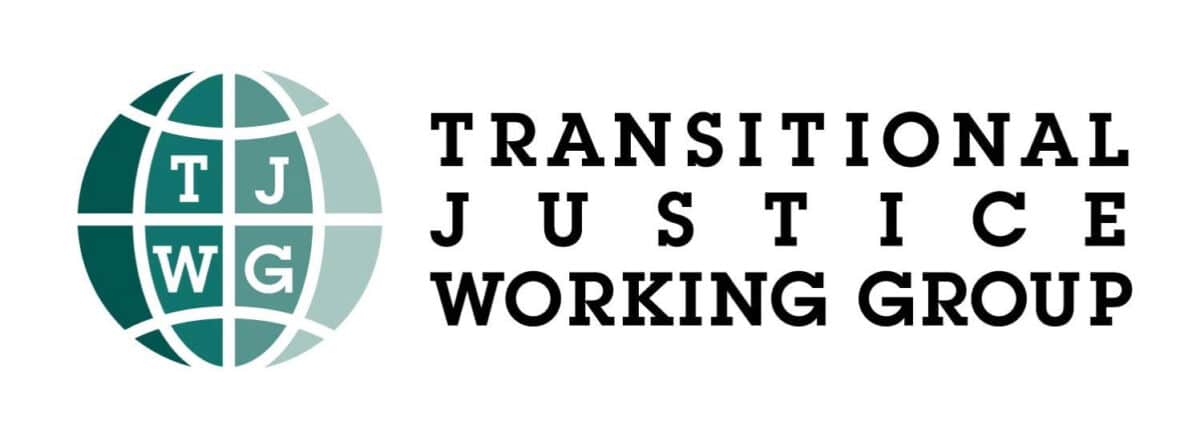
Member(s)
Transitional Justice Working Group (TJWG)
on 15 December 2023
As a human rights documentation NGO, TJWG has published biennial reports on public executions in North Korea based on interviews with North Korean defectors in 2017, 2019 and 2021. TJWG has also been calling for the complete abolition of the death penalty in North and South Korea, which has maintained it in the laws even […]
2023
Republic of Korea

Member(s)
European Saudi Organization for Human Rights (ESOHR)
on 29 November 2023
Founded in 2013 in response to extensive human rights abuses in Saudi Arabia, European Saudi Organization for Human Rights (ESOHR), which is based in Berlin, emerged in the face of a robust campaign aimed at suppressing civil society and curtailing the activities of human rights advocates. ESOHR is committed to the abolition of the death […]
2023
Saudi Arabia
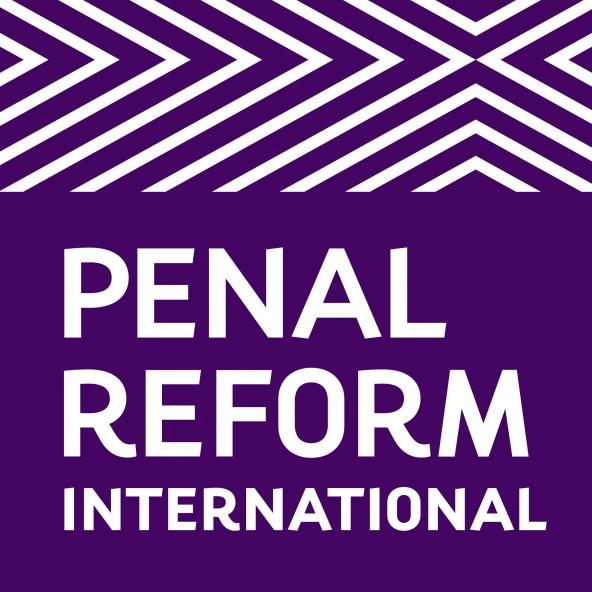
Member(s)
Penal Reform International (PRI)
on 30 April 2020
Penal Reform International (PRI) is an independent international non-governmental organisation that structures its work through a policy programme, regional programmes, and a governance and strategy programme that ensures learning and impact. Registered in The Netherlands (registration no 40025979), PRI operates globally with offices in multiple locations. We work to promote criminal justice systems that uphold […]
2020
United Kingdom

Member(s)
Women’s Information Consultative Center
on 30 April 2020
The main goal of the Women’s Information Consultative Center is to gather, generalise and disseminate information about women’s human rights and initiatives among women inside and outside Ukraine. Another goal of the Center is to create a discussion about gender issues in the political and social life of Ukraine to achieve real equality in society. […]
Ukraine

Member(s)
Coalition marocaine contre la peine de mort
on 30 April 2020
The Moroccan Coalition Against the Death Penalty (CMCPM) brings together seven NGOs: -the Moroccan Prison Observatory, -the Moroccan Human Rights Association, -the Moroccan Forum for Truth and Justice, -the Moroccan Organisation for Human Rights, -the Association of Lawyers’ Bars in Morocco, -Amnesty International – Moroccan Section and -the Centre for People’s Rights. Its objectives are […]
Morocco

Member(s)
Barreau de Paris
on 30 April 2020
The Paris Bar was founded under the reign of Louis XIV. Nowadays, it represents around 20 000 lawyers, i.e. nearly half of those practicing in France. Its prime objectives are to organise and structure the legal profession, to strengthen training and adapt it to the deep changes occurring in society and to expand the role […]
France

Member(s)
Harm Reduction International
on 30 April 2020
Harm Reduction International is a leading NGO dedicated to reducing the negative health, social and legal impacts of drug use and drug policy. We promote the rights of people who use drugs and their communities through research and advocacy to help achieve a world where drug policies and laws contribute to healthier, safer societies. Since […]
United Kingdom

Member(s)
German Coalition to Abolish the Death Penalty
on 30 April 2020
The Initiative gegen die Todesstrafe e.V. (German Coalition to Abolish the Death Penalty – GCADP) was founded in 1997 and is a non-profit organization since 2000. Our association is committed to the worldwide abolition of the death penalty. Our work is based on the contents of the Universal Declaration of Human Rights of 1948 as […]
Germany

Member(s)
Réseau d’alerte et d’intervention pour les droits de l’Homme (RAIDH)
on 30 April 2020
The Alert and Intervention Network for Human Rights (Réseau d’alerte et d’intervention pour les droits de l’Homme (RAIDH) aims to organise, finance and support any work, initiatives, measures, ideas or discussions which aim to defend and promote human rights (particularly civil and political rights, economic, social and cultural rights, international humanitarian rights, rights for refugees, […]
France
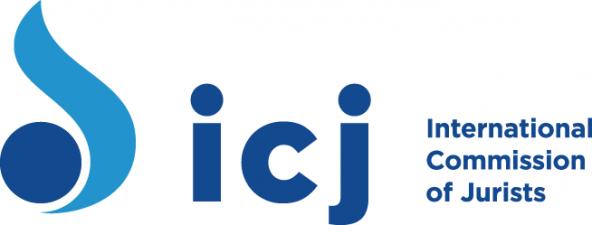
Member(s)
International Commission of Jurists
on 30 April 2020
The International Commission of Jurists (ICJ) is dedicated to promoting rule of law and advancement of human rights around the world. The ICJ statute provides: The Commission carries out activities at the global, regional, national and local level and in particular takes effective steps to: 1. Support and advance the Rule of Law and human […]
Switzerland
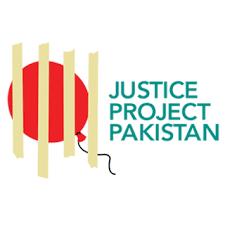
Member(s)
Justice Project Pakistan (JPP)
on 30 April 2020
Justice Project Society, commonly referred to as Justice Project Pakistan (JPP), represents the most vulnerable Pakistani prisoners facing the harshest punishments at home and abroad, including those facing the death penalty, mentally ill prisoners, juvenile prisonners, women, victims of police torture, and overseas Pakistani prisoners. JPP was the winner of the 2016 Franco-German Human Rights […]
Pakistan

Member(s)
Prison Insider
on 30 April 2020
Prison Insider is a French independent NGO. Prison Insider’s main mission is to raise awareness about the conditions of detention and to promote the rights and dignity of people deprived of liberty, everywhere in the world. To reach its aims, the organisation primarily operates an information website. Prison Insider’s vocation is to make available and […]
France

Member(s)
Taiwan Alliance to End the Death Penalty (TAEDP)
on 30 April 2020
The Taiwan Alliance to End the Death Penalty (TAEDP) is a coalition of local abolitionist NGOs and research institutes, which promotes the reform of Taiwan’s penal system in addition to advocating the abolition of the death penalty. It was launched in September 2003, by the Taiwan Association for Human Rights (TAHR), the Judicial Reform Foundation […]
Taiwan

Member(s)
Fédération Syndicale Unitaire (FSU)
on 30 April 2020
The United Trade-Union Federation (FSU) brings together 22 national trade unions in the fields of education, teaching, research, culture, training and social integration. They represent the majority or a large proportion of workers in their professional fields. FSU unites these national trade unions by combining diversity, pluralism and unity. Its characteristic organisational innovation is to […]
France

Member(s)
HURILAWS
on 30 April 2020
HURILAWS began operations in 1997 as a specialist provider of human rights legal services and a purveyor of skills in the legal aspects of transition management. Today HURILAWS is also a public policy think tank working towards attainment of development, human rights and good governance. In particular, HURILAWS is the driver of the Multi-Sector Law […]
Nigeria

Member(s)
Collectif des Organisations des Jeunes Solidaires (COJESKI)
on 30 April 2020
The Collectif des organisations des jeunes solidaires du Congo-Kinshasa RDC [Collective of Youth Solidarity Organisations in Congo-Kinshasa DRC, COJESKI-RDC] is a platform consisting of 340 youth organisations which has been operating in Congo-Zaire since 1995. Its main aim is to promote and defend positive human values, sustainable development and good governance of the Democratic Republic […]
Democratic Republic of the Congo

Member(s)
Ligue Ivoirienne des Droits de l’Homme
on 30 April 2020
The Ligue ivoirienne des droits de l’Homme [Ivory Coast Human Rights League, LIDHO] is politically and religiously independent. Its main aim is to work towards creating a state of law in Ivory Coast. To achieve that objective, it works in particular towards strengthening the legal system and ensuring an independent justice system and fair and […]
Côte d'Ivoire
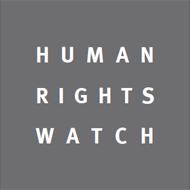
Member(s)
Human Rights Watch
on 30 April 2020
Human Rights Watch is a nonprofit, nongovernmental human rights organization made up of more than 275 staff members around the globe. Its staff consists of human rights professionals including country experts, lawyers, journalists, and academics of diverse backgrounds and nationalities. Human Rights Watch is known for its accurate fact-finding, impartial reporting, effective use of media, […]
France

Member(s)
Magistrats européens pour la démocratie et les libertés (MEDEL)
on 30 April 2020
European Judges and Public Prosecutors for Democracy and Fundamental Rights (Magistrats européens pour la démocratie et les libertés – MEDEL)) is an association regrouping 23 association of judges and prosecutors coming from 16 European countries. Its activities are centred on debates and studies on the independence of the judiciary and international judicial co-operation, in connection […]
Germany

Member(s)
Amnesty International (AI)
on 30 April 2020
Amnesty International (AI) is a worldwide voluntary activist movement working for human rights. It is independent of any government, political ideology, or religious creed, economic interest or religion. It does not support or oppose any government or political system, nor does it support or oppose the views of the victims whose rights it seeks to […]
United Kingdom

Member(s)
Association Marocaine des Droits Humains (AMDH)
on 30 April 2020
Association marocaine des droits humains (AMDH) works towards safeguarding human dignity and for the respect, defence and promotion of human rights. Convinced of the universal nature of these rights, the AMDH bases its action on the international agreements which defend them. It campaigns for them to be respected in the political, civil, economic, social and […]
Morocco

Member(s)
ACAT France
on 30 April 2020
ACAT-France – Action by Christians for the Abolition of Torture – is a human rights NGO that campaigns for the abolition of torture and the death penalty, and defends the right to asylum. Founded in 1974, ACAT-France has 28,000 members, including nearly 6,000 supporters and a team of 25 professionals working in its national secretariat. […]
France

Member(s)
Kenyan Section of the International Commission of Jurists (ICJ-KENYA)
on 30 April 2020
Mandate and goals : – To develop, strengthen and protect the principles of the rule of law in Kenya. – Develop, maintain and protect the independence of the judiciary and the legal profession in Kenya. – Protect and promote the enjoyment of human rights in Kenya and Africa. Kind of actions : – Legal research […]
Kenya

Member(s)
National Association of Criminal Defense Lawyers (NACDL)
on 30 April 2020
The National Association of Criminal Defense Lawyers is the preeminent organization advancing the mission of the criminal defense bar to ensure justice and due process for persons accused of crime or wrongdoing. A professional bar association founded in 1958, NACDL’s 12,000-plus direct members in 28 countries – and 90 state, provincial and local affiliate organizations […]
United States
Member(s)
Center for Constitutional Rights
on 30 April 2020
Center for Constitutional Rights is an American NGO based in New York. The Center for Constitutional Rights is committed to fighting injustice on many fronts, as demonstrated by the breadth of our cases as well as our organizing work. CCR works on a wide range of issues: illegal surveillance and attacks on dissent, Criminal Justice […]
United States

